Biden defends exit from Afghanistan as ‘success,’ says work not done
In his first speech since he ended America’s longest war, President Biden on Tuesday lauded the U.S. military’s massive airlifts from Afghanistan, describing the brave work as historically unprecedented, and vigorously defended his decision to stop the campaign despite its tragic close.
One day after the final U.S. planes roared out of an Afghanistan lost to the Taliban, the embattled president said the exit marked an “extraordinary success.” And he framed his polarizing decision to leave as not merely strategically prudent, but part of a vital philosophical shift in American foreign policy.
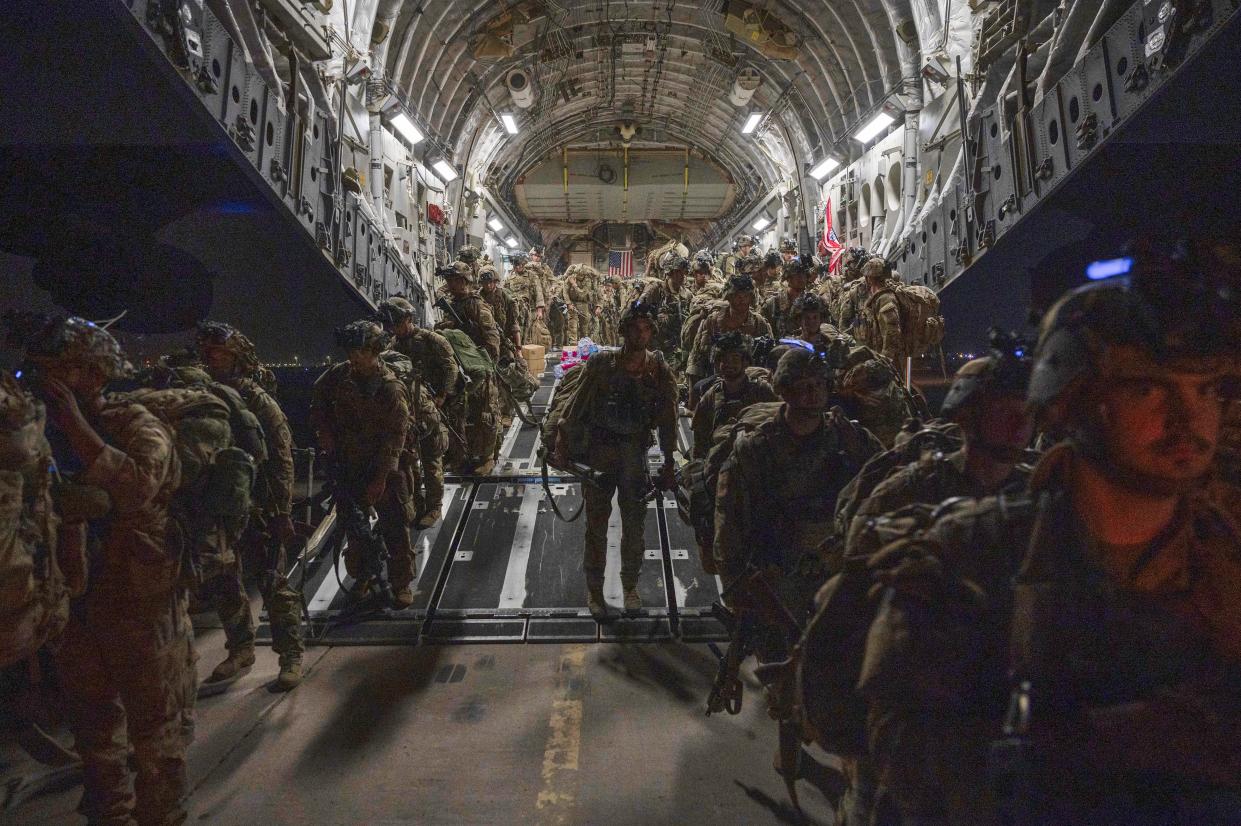
“This decision about Afghanistan is not just about Afghanistan,” Biden said in a measured but defiant 26-minute speech from the White House. “It’s about ending an era of major military operations to remake other countries.”
Biden, painting America’s two-decade campaign as a “forever war,” suggested the U.S. was attempting the all-but-impossible by trying to build a cohesive democracy in Afghanistan. He said a turn away from nation-building will “make us stronger and more effective and safer at home.”
He made that promise amid significant fears that the U.S. had reopened the door to the growth of terrorist groups by leaving Afghanistan, a country now controlled by the ruthless Taliban — the group that America drove out of the country nearly 20 years ago.
After the Taliban took control of Afghanistan this month, the U.S. conducted a perilous two-week rescue operation at the airport in the capital city of Kabul. Relying on the Taliban for security cover, America managed to airlift more than 120,000 people — mostly Afghans — despite frequent threats.
But on Thursday, the withdrawal hit a bloody turn when a bomb-toting terrorist managed to get past Taliban checkpoints, reaching U.S. troops before he detonated his explosives. The blast rocked a crowded area near the Abbey Gate of Kabul’s Hamid Karzai International Airport.
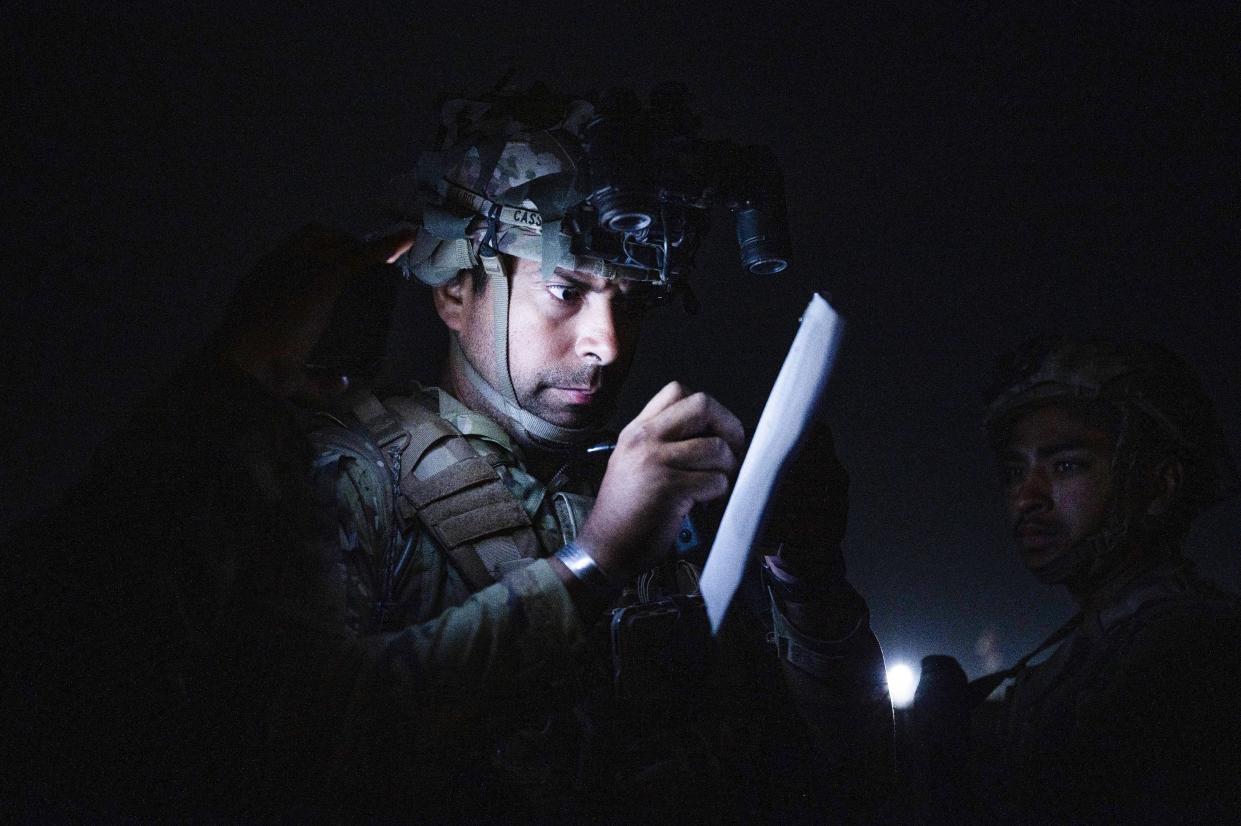
More than 180 people died, including 13 U.S. troops, a grisly final chapter in a war believed to have killed 2,461 American service members and more than 47,000 Afghan civilians. ISIS-K, an Islamic State affiliate and a rival of the Taliban, claimed the attack.
Though the Taliban quickly returned to power this summer, taking advantage of an opening left by the U.S. withdrawal, Biden insisted Tuesday that the war had served its purpose. He said the U.S. succeeded in its aims in 2011 when it killed Osama bin Laden, the leader of Al Qaeda and mastermind of the Sept. 11 attacks that prompted the war.
“We succeeded in what we set out to do in Afghanistan over a decade ago, and then we stayed for another decade,” Biden said. “It was time to end this war.”
But he also presented his choice as the product of an agreement made by his predecessor, Donald Trump, who reduced the number of troops in Afghanistan and reached a deal with the Taliban that set a May 1 exit for the U.S. In April, Biden said he was pushing the deadline to September, but sticking to the contours of Trump’s agreement.
When Biden entered the White House this winter, he said, the Taliban had already strengthened significantly. Trump had dealt him a tricky hand, he claimed.
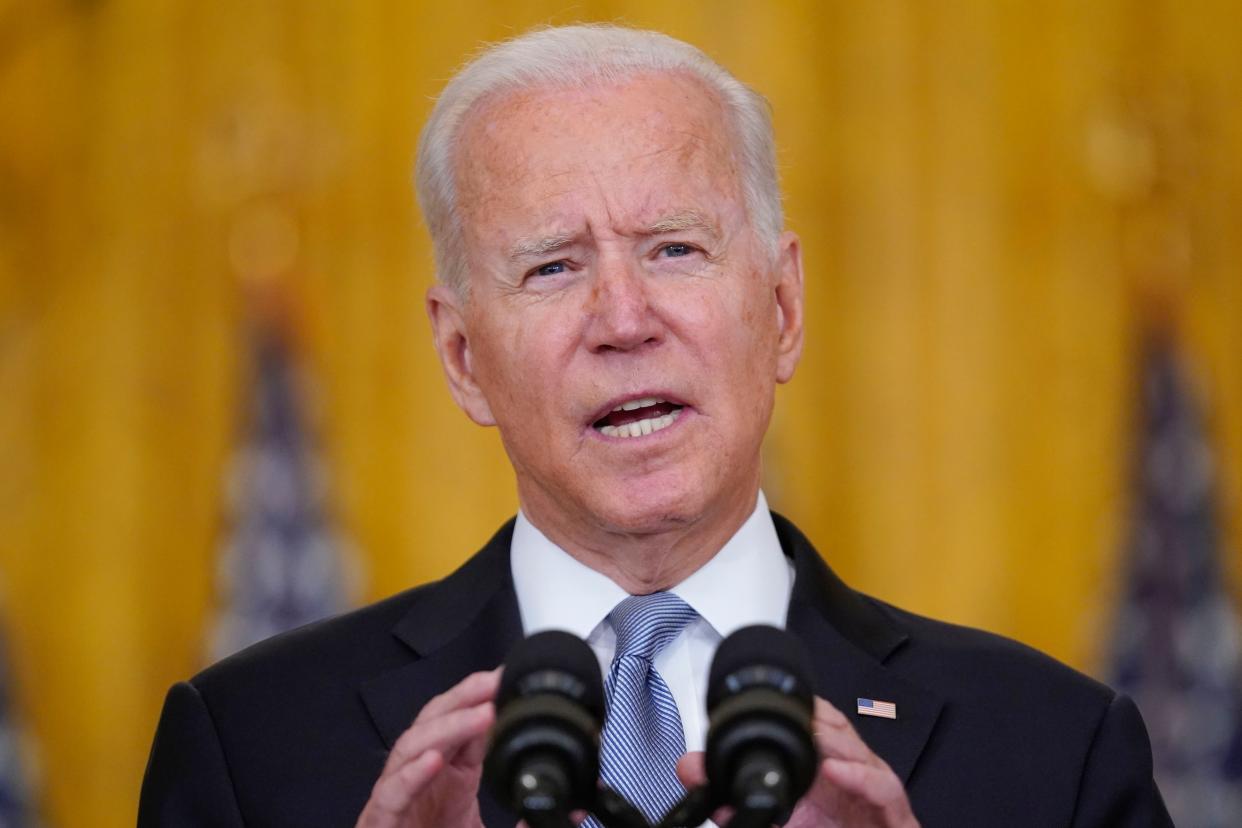
“The Taliban onslaught was coming,” Biden said, arguing that he could order a withdrawal or “send in thousands of more troops and escalate the war.”
Critics have claimed that the U.S. could have managed the Taliban threat without flooding the region with troops. And the Biden administration has acknowledged that the Taliban takeover this summer came far more quickly than the White House expected.
Biden has received perhaps the most heat over the evacuation process. Despite its extraordinary sweep, it left some Americans and legions of at-risk Afghans in Kabul.
Republicans have howled that Biden left America’s allies in the lurch. Senate Minority Leader Mitch McConnell (R-Ky.) issued a statement on Tuesday that described the U.S. departure as “disgraceful and disastrous.” He said America’s security had been weakened, and a frightful situation had been unleashed in Afghanistan.
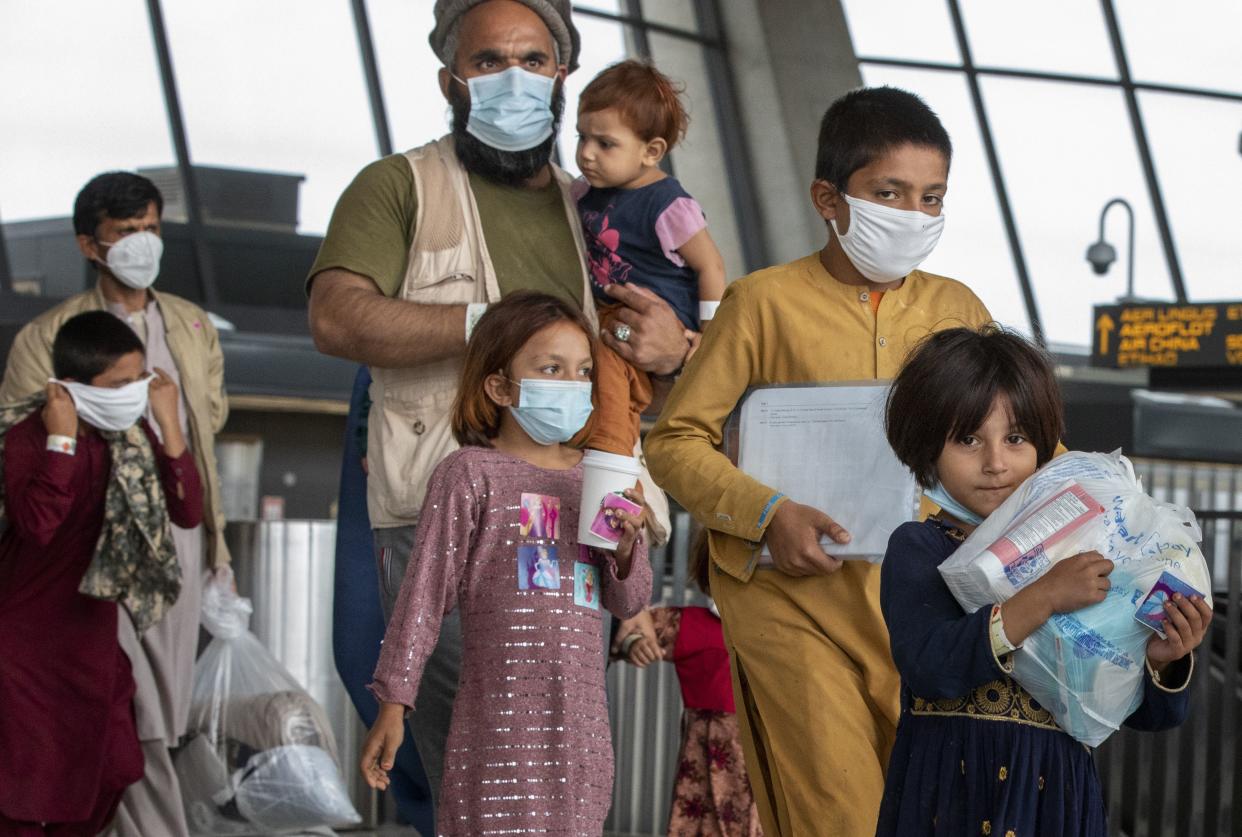
“President Biden’s reckless withdrawal has created a humanitarian disaster and emboldened the terrorists,” McConnell said in the statement. “The plight of innocent Afghans and the threats to our American homeland and American interests are going to grow and grow.”
Biden noted in his address that the Taliban, who have tried to rebrand with a friendlier face, have committed to provide safe passage to anybody trying to escape. It’s unclear if that commitment will be met.
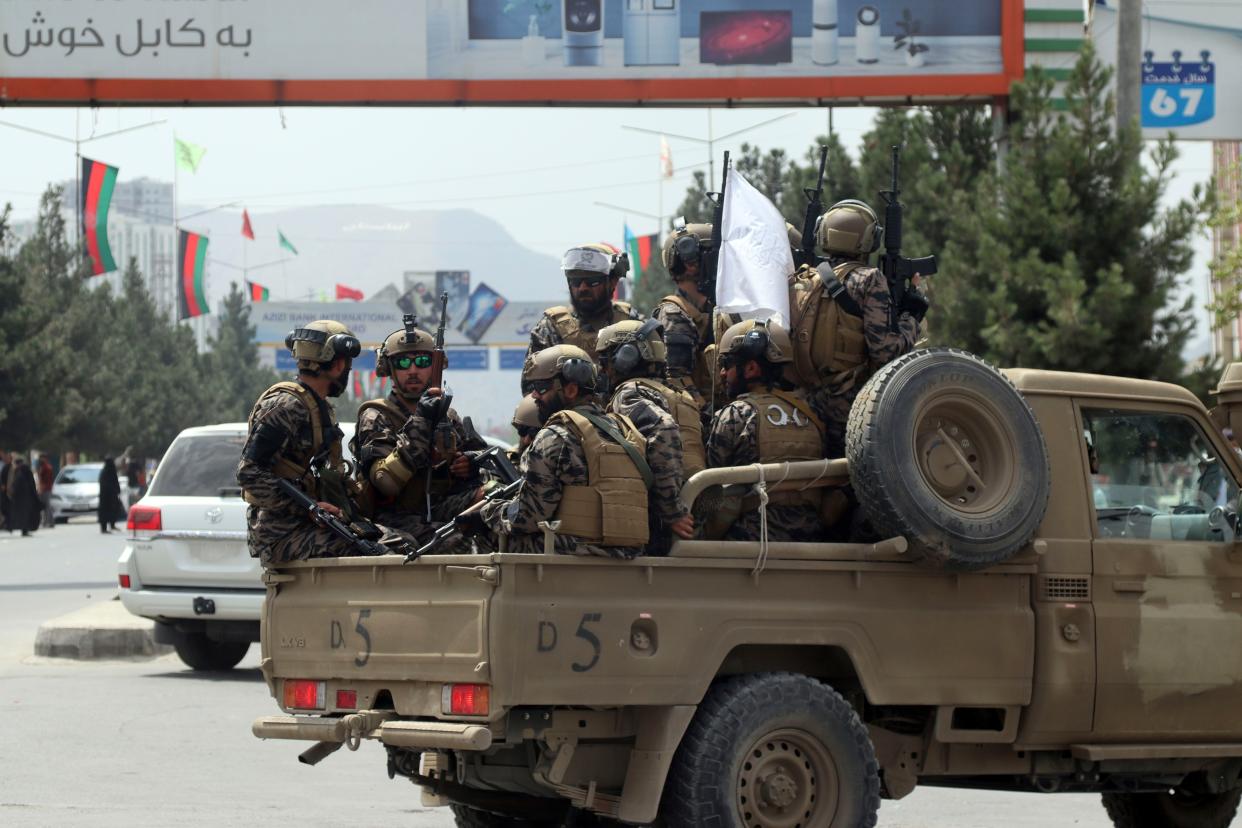
Biden said about 100 to 200 Americans “with some intention to leave” remain in Afghanistan, mostly dual citizens, and he promised the U.S. will work to retrieve them if they wish to leave. And he said America’s approach to terrorism would evolve.
“I simply do not believe that the safety and security of America is enhanced by continuing to deploy thousands of American troops and spending billions of dollars a year in Afghanistan,” the president said. “We will maintain the fight against terrorism in Afghanistan and other countries. We just don’t need to fight a ground war to do it.”
Perhaps above all, the president sought to emphasize the remarkable work of service members in the final days of the mission. He called the airlifts a “mission of mercy” that could not have been managed by any other country, and he lauded the skill and unimaginable courage of the troops who pulled it off.
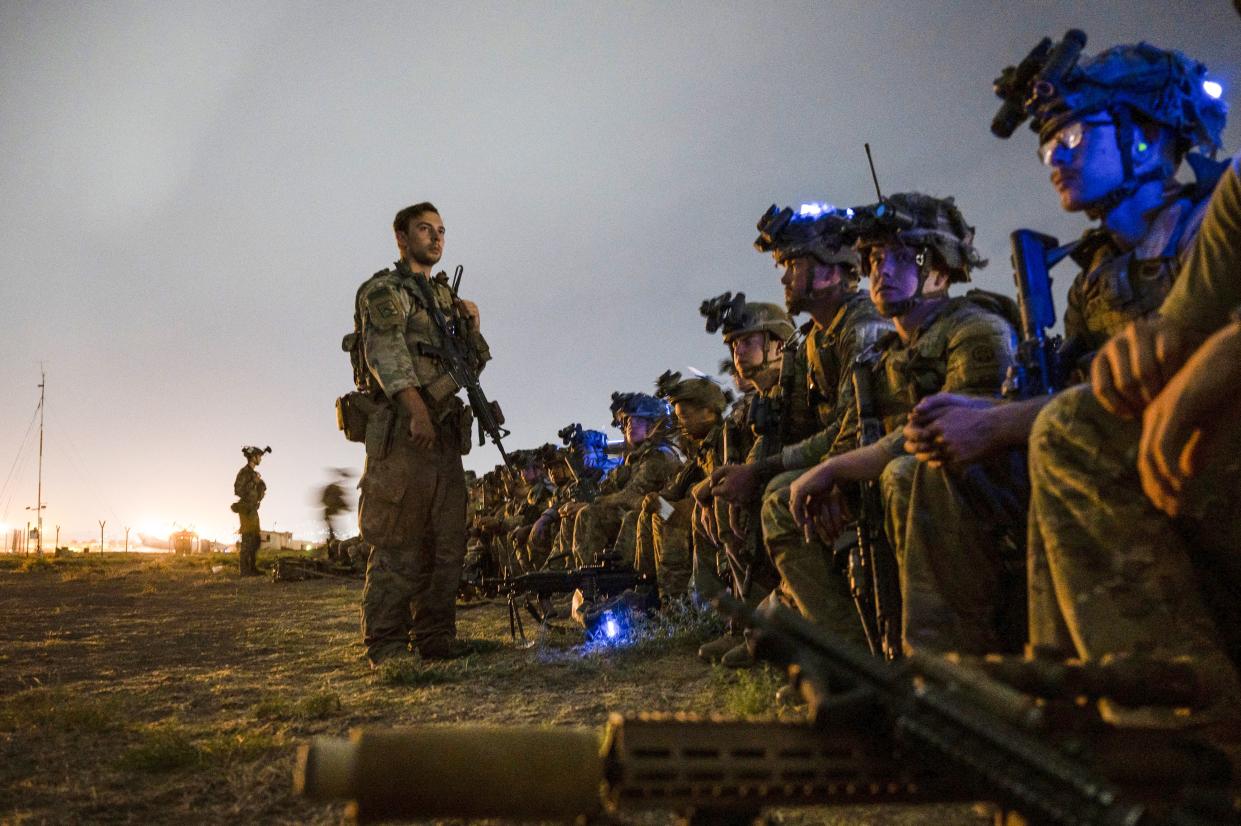
“No nation has ever done anything like it in all of history,” the president said, noting that America’s armed forces worked as ISIS-K terrorists lurked in a “crush of enormous crowds seeking to leave the country.”
But after presiding over what is sure to be remembered as — at best — an immensely messy chapter in U.S. foreign policy, the president acknowledged America’s efforts are incomplete in the war-torn country.
He said the U.S. will work with its allies to maintain travel access out of Afghanistan, where many fear the new regime. When the Taliban were last in power, they banned TV, hosted public executions and terrorized women and girls.
“We will continue to work to help more people leave the country,” Biden said. “We’re far from done.”
